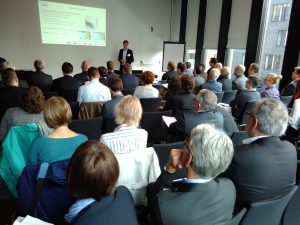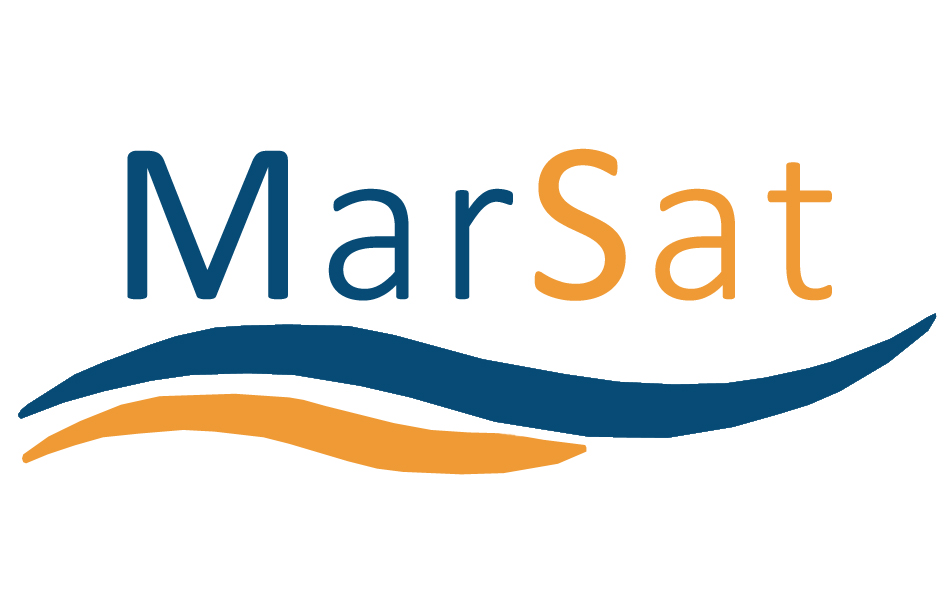MARSAT network of data suppliers, users and academia on the value of environmental data and the challenges for satellite-borne methods for the maritime industry
Data from Earth Observation satellites offer a unique view of our oceans, seas, and coasts. Satellites, and their on-board sensors, provide routine, cost effective, wide area surveillance over all maritime zones. Alternatively satellites can be pointed to a targeted location for monitoring specific operations or to gather information in response to intelligence information.
Satellite Services for the maritime industry was the subject of the MARSAT workshop held on 21 September 2017 in Hamburg. The workshop drew together more than 50 potential users from shipping companies, commercial operators, system service providers, safety officers and consulting services. The aim was to cross-fertilize ideas on how marine companies can benefit from satellite services and how they can integrate them in their daily routine.
MARSAT, funded by the BMWi, the German Federal Ministry for Economic Affairs and Energy, is a network of five private companies and a research institute and develops new services for the maritime industry using satellite data.
Maritime services based on the integrated utilization of space-based systems are of interest to a wide range of user communities: fisheries, coast guards, port authorities, military bodies, shipping companies, commercial operators, international, national and european institutions.
Within three interactive working groups participants discussed the current status of navigation, environmental monitoring and data integration with a special focus on space-based technologies by addressing unmet needs identified by the audience.
“Satellite-borne earth observation techniques impress by their ease of access, their rate of effort in time and money and also their enhanced archiving capabilities.” Peter Dugge, System Engineer, ATLAS Elektronik GmbH.
“But there are also challenges for space-based methods which the maritime industry has to face: standardization of data, integration of multi-source data and the need for shorter delivery time.”
The Impact of Earth Observation Data

MARSAT workshop, September 2017, Hamburg
Earth observation is not new, but it is only recently that investments in satellite capabilities and advances in algorithms and data processing have started to enable the widespread use of this intelligence information at scale.
Space-based data can offer a wealth of information on water quality, soil carbon and soil moisture, and the oceans. Shallow water zone bathymetric data for example is of increasing importance to support various applications such as safety of navigation, reconnaissance surveys, coastal zone management or hydrodynamic modeling.
EO data also contributes to maritime surveillance to help manage the actions and events that can have an impact on maritime safety and security, including for marine pollution, accident and disaster response, search and rescue as well as maritime border and fisheries control.
“What we have learnt from our today’s workshop is to mitigate information gaps, recognize the demand for standardized real-time data and operational data flow to increase efficiency and performance of the maritime industry. The MARSAT network pools expert knowledge on satellite data provision and analysis, IT and the maritime industry to build the base for improved decision making for route optimization, offshore planning and maintenance,” said Dr. Knut Hartmann, Director Client Services at EOMAP GmbH & Co. KG and project coordinator of MARSAT.
“A lot of useful satellite data exist, but they are still not well integrated on board. Let’s move forward to accomplish this.” said Lasse Rabenstein, CEO of Drift & Noise Polar Services GmbH and partner of the MARSAT network.
The next MARSAT workshop will take place in 2018.
For more information please visit https://marsat-project.org/index.php/en/ or contact Dr. Knut Hartmann EOMAP GmbH & Co. KG at hartmann@eomap.de.
About MARSAT
MARSAT is a network of small and medium-sized enterprises and a research institute and combines extensive expert knowledge in the field of satellite services, software development, and maritime services. MARSAT is being financed and coordinated by the DLR Space Administration with funding from the German Federal Ministry for Economic Affairs and Energy (BMWi).
